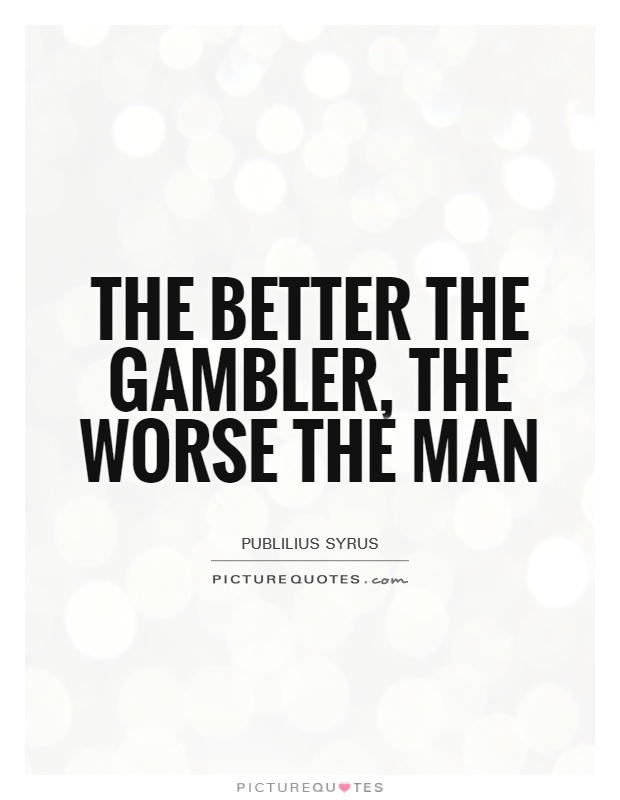The better the gambler, the worse the man

The better the gambler, the worse the man
Publilius Syrus, a Roman writer and philosopher known for his collection of moral aphorisms, once famously said, "The better the gambler, the worse the man." This statement speaks to the idea that those who excel at gambling often exhibit negative character traits or engage in unethical behavior. While gambling itself is not inherently immoral, the pursuit of success in this realm can sometimes lead individuals down a path of deceit, greed, and moral compromise.In the context of Publilius Syrus' time, gambling was a popular pastime among the Roman elite. It was seen as a way to test one's luck and skill, and could be a source of entertainment and social status. However, the pursuit of gambling success could also bring out the worst in people. Those who were skilled at games of chance often became arrogant and overconfident, believing that their success was due to their own abilities rather than luck. This sense of superiority could lead to a lack of empathy for others, as winning became more important than ethical behavior.
Furthermore, the pursuit of gambling success could also lead individuals to engage in dishonest or unethical practices. Cheating and manipulation were not uncommon in the world of gambling, as players sought to gain an advantage over their opponents. This willingness to bend or break the rules in order to win could spill over into other areas of life, leading to a lack of integrity and moral character.












 Friendship Quotes
Friendship Quotes Love Quotes
Love Quotes Life Quotes
Life Quotes Funny Quotes
Funny Quotes Motivational Quotes
Motivational Quotes Inspirational Quotes
Inspirational Quotes